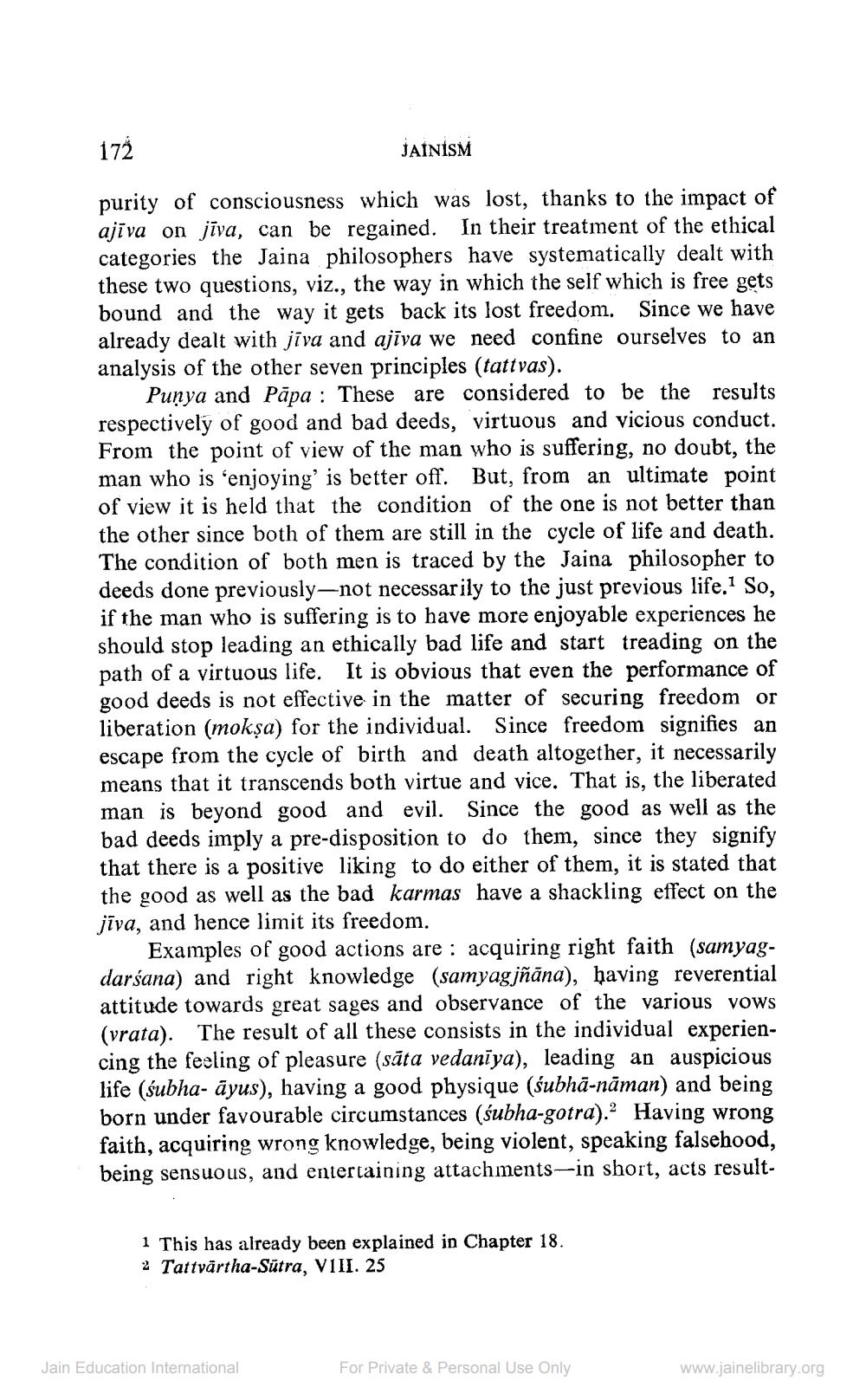________________
172
JAINISM
purity of consciousness which was lost, thanks to the impact of ajiva on jīva, can be regained. In their treatment of the ethical categories the Jaina philosophers have systematically dealt with these two questions, viz., the way in which the self which is free gets bound and the way it gets back its lost freedom. Since we have already dealt with jīva and ajīva we need confine ourselves to an analysis of the other seven principles (tattvas).
Punya and Pāpa : These are considered to be the results respectively of good and bad deeds, virtuous and vicious conduct. From the point of view of the man who is suffering, no doubt, the man who is “enjoying' is better off. But, from an ultimate point of view it is held that the condition of the one is not better than the other since both of them are still in the cycle of life and death. The condition of both men is traced by the Jaina philosopher to deeds done previously-not necessarily to the just previous life. So, if the man who is suffering is to have more enjoyable experiences he should stop leading an ethically bad life and start treading on the path of a virtuous life. It is obvious that even the performance of good deeds is not effective in the matter of securing freedom or liberation (moksa) for the individual. Since freedom signifies an escape from the cycle of birth and death altogether, it necessarily means that it transcends both virtue and vice. That is, the liberated man is beyond good and evil. Since the good as well as the bad deeds imply a pre-disposition to do them, since they signify that there is a positive liking to do either of them, it is stated that the good as well as the bad karmas have a shackling effect on the jīva, and hence limit its freedom.
Examples of good actions are : acquiring right faith (samyagdarśana) and right knowledge (samyagjñāna), having reverential attitude towards great sages and observance of the various vows (vrata). The result of all these consists in the individual experiencing the feeling of pleasure (sāta vedanīya), leading an auspicious life (subha- äyus), having a good physique (śubhā-nāman) and being born under favourable circumstances (subha-gotra). Having wrong faith, acquiring wrong knowledge, being violent, speaking falsehood, being sensuous, and entertaining attachments-in short, acts result
1 This has already been explained in Chapter 18. 2 Tattvārtha-Sütra, VIII. 25
Jain Education International
For Private & Personal Use Only
www.jainelibrary.org




